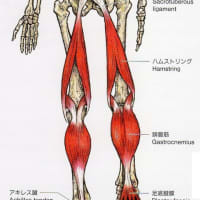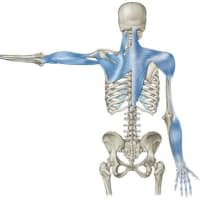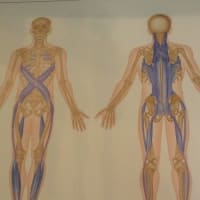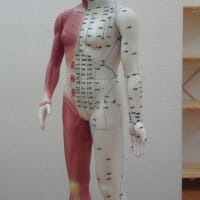http://englishplus.com/grammar/glossary.htm
A
abbreviation
名詞
(語の)省略, 略語.
Apr. is an abbreviation for April.
Apr.はApril(4月)の略語です。
2."Doc" is an abbreviation of "doctor"
Docはdoctorの短縮形である。
3.We use DS as an abbreviation of 'dyad' style.
ここではDSを「ダイアド」スタイルの省略形として使う。
dyad=2個[二人]一組, 一対
Absolute Modifiers
絶対的な修飾子
Accented Syllables
アクセント音節
acronym
[ǽkrənim]
名詞
頭字語(<補説>例 NATO).
Active Voice of Verbs
動詞の能動態
adjective
[ǽdʒiktiv]
形容詞
形容詞
形容詞(的)の.
Adjective Clause
形容詞句
adverb
[ǽdvəːrb]
名詞
副詞.
Adverb Clause
副詞節
ambiguous
[æmbíɡjuəs]
形容詞
あいまいな, 両[多]義にとれる.
antecedent
先行詞
先行する
先行词
Appositive
Archaic/Archaism
Article
Auxiliary Verb
B
Basic Tenses
Verb To Be
C
Capitalize
Capital Letters
Case
Clause
Clam Chowder
Cliche
Comparative Degree
Complement
Complex Sentence
Compound
Compound-Complex Sentence
Compound Sentence
Conjunction
Conjunctive Adverbs
Contraction
Coordinate Adjectives
Cumulative Adjectives
D
Dangling Modifier
Declarative Sentence
Demonstratives
Dependent Clause
Direct Address
Direct Object
Direct Quotation
E
Ellipsis
Elliptical Clause
Emphatic Tenses
Exclamation
F
Formal
Fragment
Fragmentary Response
G
Gerund
H
He Said/She Said Clause
I
Imperative Mood
Imperative Sentence
Imperfect Tense
Indefinite Pronoun
Independent Clause
Indicative Mood
Indirect Object
Indirect Question
Indirect Quotation
Infinitive
Informal
Intensive Pronoun
Interjection
Interrogative Pronoun
Interrogative Sentence
Intransitive Verb
Irony
J
jargon
L
Linking Verb
Ligature
M
Main Clause
Misplaced Modifier
Mood
Modifier
Modify
N
Negative
Nomenclature
Nominative Absolute
Nominative Case
Nonrestrictive Modifiers
Nonstandard
Noun
O
Object Complement
Object of Preposition
Objective Case
Onomatopoeia
P
Parenthetical Expression
Participle
Part of Speech
Passive Voice
Perfect Tenses
Person
Phrase
Plural
Positive Degree
Possessive Case
Possessive Pronoun
Predicate
Predicate Nominative
Preposition
Prepositional Phrase
Principal Parts
Progressive Tenses
Pronoun
Proper Noun
Proper Adjective
Punctuation
R
Redundant
Reflexive Pronoun
Relative Pronoun
Run-on Sentence
S
Schwa
Sentence
Singular
Syllable
Standard English
Series
Stilted
Subject of Infinitive
Subject
Subordinate Clause
Subordinating Conjunction
Subjunctive Mood
Superlative
T
Tense of Verbs
Transitive Verbs
V
Verb (Part of Speech)
Verb (Sentence Part)
Verbal
Verb To Be
W
Wordy/Wordiness
略語
絶対的な修飾子
アクセント音節
頭字語
動詞の能動態
形容詞
形容詞句
副詞
副詞節
あいまいな
先行する
同格語
アルカイック/古風なもの
記事
補助動詞
B
基本的な時制
トゥ·ビー·動詞
℃
大文字
大文字
ケース
句
クラムチャウダー
決まり文句
比較度
補完する
複文
化合物
化合物複文
重文
共同
連言副詞
収縮
形容詞を調整する
累積形容詞
D
ダングリング修飾
平叙文
詞
従属節
ダイレクトアドレス
直接目的語
直接引用
E
省略
楕円形の句
強調時制
感嘆符
F
正式な
フラグメント
断片的な応答
G
動名詞
H
と彼は言った/彼女は、同条
私は
命令法
命令文
未完了時制
不定代名詞
独立節
直説法
間接目的語
間接的な質問
間接的な引用
不定詞
非公式
集中的な代名詞
間投詞
疑問代名詞
疑問文
自動詞
皮肉
J
専門用語
L
連結動詞
結紮
M
主節
見当違いの修飾
気分
修飾子
修正する
N
負
命名
絶対主格
主格
非制限的修飾
非標準の
名詞
O
オブジェクト補
前置詞の目的語
目的格
擬音語
P
挿入句
分詞
品詞
受動態
完璧な時制
人
フレーズ
複数の
原級
所有格
所有代名詞
述語
主格の述語
前置詞
前置詞句
主なパーツ
プログレッシブ時制
代名詞
固有名詞
固有形容詞
句読点
R
冗長な
再帰代名詞
関係代名詞
実行するオン文
S
シュワー
文
単数形
音節
標準英語
シリーズ
堅苦しい
不定詞のテーマ
テーマ
従属節
接続詞を従属
仮定法
最上級
T
動詞の時制
他動詞
V
動詞(音声の一部)
動詞(文部)
言葉による
トゥ·ビー·動詞
W
冗長/くどい言い回し
http://englishplus.com/grammar/contents.htm
Introduction to Grammar Slammer
Grammar Slammer Topic List
Introduction to Grammar Slammer
How to Use Grammar Slammer Deluxe
Style and Usage
Style and Usage Contents
Sentence Fragments
Run-On Sentences
Dangling Modifiers
Misplaced Modifiers
The Right Pronoun to Use (Case)
Possessive Pronouns
Pronouns with Than and As
Subject-Verb Agreement
Indefinite Pronouns
Pronouns Ending in -self
Pronoun-Antecedent Problems
The Subjunctive
Comparisons
Irregular Comparisons
Comparison Problems
Negatives
Tricky Plurals
The Verb To Be
Capitalizing
Capitalization Contents
Capitalizing Sentences
Capitalizing Quotations
Special Cases for Capitalizing
Capitalizing Proper Nouns
Names Not Capitalized
Capitalizing Proper Adjectives
Capitalizing Personal Titles
Capitalizing Titles of Things
Capitalizing in Letters
Scientific Nomenclature
Abbreviations
Abbreviations Contents
Abbreviated Names and Social Titles
Abbreviated Rank and Academic Titles
Abbreviations After a Name
Abbreviations of Geographical Features
State and Province Abbreviations
Abbreviations of Units of Measure
Abbreviations of Units of Time
Common Latin Abbreviations
Abbreviations in Names of Businesses
Acronyms and Pronounced Abbreviations
Scientific Nomenclature
Punctuation
Punctuation Contents
Periods
Question Marks
Exclamation Points
Commas
Comma Contents
The Three Most Common Comma Rules
Commas in Compound Sentences
Commas in a Series
Commas with Paired Adjectives
Commas and Introductory Words
Commas After Introductory Phrases
Commas After Introductory Clauses
Commas with Interrupting Expressions
Commas with Nonrestrictive Modifiers
Commas with Geographical Names
Commas with Dates
Commas with Titles that Follow Names
Commas in Addresses
Commas in Letter Writing
Commas in Numbers
Commas with Certain Words Omitted
Commas with Quotations
Adding Commas for Clarity
Commas with Adjectives Following Nouns
When Not to Use Commas
Semicolons and Colons
Semicolon and Colon Contents
Semicolons with Clauses
Semicolons in a Series
Colons with Lists
Colons Before Quotations
Colons Separating Independent Clauses
Colons with Appositives
Special Cases Using Colons
New England Clam Chowder
Quotation Marks
Quotation Marks Contents
Quotation Marks in Direct Quotations
Question Marks and Exclamation Points in Quotations
Other Punctuation Marks with Quotation Marks
Quotation Marks in Dialogue
Quotation Marks in Titles
Titles Which Take No Punctuation
Quotation Marks with Slang
Definitions in Quotation Marks
Single Quotation Marks
Italicizing and Underlining
Italics and Underlining Contents
Underlining Titles
Underlining Names
Underlining Foreign Words or Abbreviations
Underlining Words for Emphasis
Underlining Items Which Name Themselves
Titles Which Take No Punctuation
Scientific Nomenclature
Dashes and Parentheses
Dashes and Parentheses Contents
Using Dashes
Dashes with Nonrestrictive Modifiers
Using Parentheses
Parentheses with Certain Numbers and Letters
Punctuation Inside Parentheses
Hyphens
Hyphens Contents
Numbers Written Out with Hyphens
Hyphenated Prefixes and Suffixes
Hyphenated Compound Words
Hyphens for Clarity
Dividing at the End of a Line
Apostrophes
Apostrophes Contents
Apostrophes Showing Possession
Plural Possessives
Possessives with More than One Owner
Apostrophes with Underlined or Italicized Items
Apostrophes with Verb Contractions
Apostrophes with Other Contractions
Ellipsis, Bracket, and Virgule
The Ellipsis
Brackets (Crotchets)
The Virgule (Slant Bar)
Letter Writing
Letter Writing Contents
Business Letters
Business Letter Formats
Friendly Letters
Friendly Letter Format
Envelopes
Envelope Format
Folding a Standard Letter
Common Mistakes and Choices
Common Mistakes Contents
Common Mistakes Index--Letter A
A/An
Absolute Modifiers
Accept/Except
Accuse/Allege
Across/Acrossed/Cross
Adapt/Adopt
Administer/Administrate
Aggravate/Irritate
Ain't
A hold/Ahold
A lot/Allot/Alot
Already/All Ready
Alright/All Right
Alternate(ly)/Alternative(ly)
Altogether/All Together
Always/All Ways
American Grammar vs. British Grammar
Among/Between
Amount/Number
Ante-/Anti-
Anxious/Eager
Anymore
Anyone/Any One
Anyway/Any Way
Anyways
Anywheres
Apart/A part
As/Like
As To
At after Where
A Ways
Awhile/A While
Common Mistakes Index--Letters B and C
Bad/Badly
Because after Reason
Being As or Being That
Beside/Besides
Between/Among
Blatant/Flagrant
Blond/Blonde
Bring/Take
British Grammar vs. American Grammar
Burst/Bust/Busted
Can/May
Can't Help But
Clipped Words
Compose/Comprise
Continual/Continuous
Convince/Persuade
Could Have/Could Of
Credible/Credulous/Creditable
Cross/Across/Acrossed
Cult/Occult
Common Mistakes Index--Letters D, E, and F
Decisive/Incisive
Different From/Different Than
Diffuse/Defuse
Disinterested/Uninterested
Done as Verb
Doesn't/Don't
Due To
Due To the Fact That
Economic/Economical
Emigrate/Immigrate
Enthused/Enthusiastic
Envious/Jealous/Suspicious
Equivocal/Equivocable
Especial(ly)/Special(ly)
Everyone/Every One
Everywheres
Exalt/Exult
Except/Accept
Farther/Further
Fewer/Less
Flagrant/Blatant
For Free
Fortunate/Fortuitous
Common Mistakes Index--Letters G, H, and I
Gone/Went
Good/Well
Hanged/Hung
Have or Had plus Ought
Have after Could, Would, Should, or Will
Healthful/Healthy
Height or Heighth
Hers/Her's
Historic/Historical
Hopefully
Hypo-/Hyper-
Hypocritical/Hypercritical
I Hope/Hopefully
Immigrate/Emigrate
Imply/Infer
In after Want
Incisive/Decisive
Incredible/Incredulous
Indeterminate/Indeterminable
Irregardless/Regardless
Irritate/Aggravate
Its/It's
Common Mistakes Index--Letters J, K, L, and M
Jealous/Envious/Suspicious
Jiggle/Joggle/Juggle
Judicious/Judicial/Juridical
Just, Use of
Kind Of, Use of
Lay/Lie
Leave/Let
Lend/Loan
Less/Fewer
Less/Littler (More Little)
Like/As
Lie/Lay
Literal(ly)
Littlest/Least
Loath/Loathe
Luxuriant/Luxurious
Macro-/Micro-
Magnificent/Munificent
Manic/Maniac
May/Can
Maybe/May Be
Morale/Moral
Common Mistakes Index--Letters N, O, P, and Q
Nowheres
Number/Amount
Occult/Cult
Of, Use of
Of after Would, Could, Should, or Will
Official/Officious
Orient/Orientate
Only, Use of
Ought with Have or Had
Perimeter/Parameter
Persecute/Prosecute/Persecution/Prosecution
Perspective/Prospective
Persuade/Convince
Prescribe/Proscribe/Prescription
Presume/Assume
Proscribe/Prescribe/Prescription
Prosecute/Persecute/Prosecution/Persecution
Prospective/Perspective
Quash/Squash
Quote/Quotation/Quotation Mark
Common Mistakes Index--Letters R and S
Raise/Rise
Real/Really
Reason with Because
Regardless/Irregardless
Renown/Reknown
Says/Said
Seen/Saw
Sensual/Sensuous
Set/Sit
Should Have/Should Of
Single/Singular
Solid/Stolid
Somewheres
Sort Of
Special(ly)/Especial(ly)
Squash/Quash
Strategy/Tactics
Supposed to/Suppose to
Suspicious/Jealous/Envious
Sure/Surely
Common Mistakes Index--Letter T
Tactics/Strategy
Take/Bring
Tenet/Tenant
Than/Then
That/Where
That There and This Here
That/Which/Who
Them/Those
Then/Than
There/Their/They're
There's/Theirs/Their's
To/Too/Two
Tortuous/Torturous/Tortured
Try And/Try To
Turbid/Turgid
Common Mistakes Index--Letters U through Z
Unequivocal/Unequivocable
Uninterested/Disinterested
Unique (and Other Absolute Modifiers)
Used to/Use to
Want followed by In, Out, Off, Down, or Up
Warranty/Warrantee/Warrant
Ways after A
Well/Good
Went/Gone
Where Followed by At
Where/That
Who/Which/That
Who's/Whose
Will Have/Will Of
-Wise (Suffix)
Would Have/Would Of
Glossary
Glossary
Other Information
Other Products and Copyright Info
Ordering Other Products
Ordering Grammar Products
Copyright Notice and Acknowledgments
Take your Grammar Skills to the Next Level
Online MBA
Online Copywriting, Copywriting communication
Communication and Spoken Grammar
Masters in Communications
http://suite101.com/article/the-grammatical-object-complement-in-english-a117634
言葉の研究
The following article explains the five grammatical forms that can function as the grammatical object complement in the English language.
Although noun phrases and adjective phrases most frequently function as the object complement in sentences, five grammatical forms can perform the grammatical function of object complement in the English language. Both native English-speaking and ESL students must learn the five forms in order to speak and write sentences with object complements correctly. The five grammatical forms that can function as the object complement are:
Noun phrases
Adjective phrases
Prepositional phrases
Verb phrases
Noun clauses
オブジェクトの補語として機能することができる5文法形式は、次のとおりです。
名詞句
形容詞句
前置詞句
動詞句
名詞句
Read more at Suite101: The Grammatical Object Complement in English: Five Words, Phrases, and Clauses that Describe the Direct Object | Suite101.com http://suite101.com/article/the-grammatical-object-complement-in-english-a117634#ixzz1wkN9iri1
Object complements are defined as words, phrases, and clauses that immediately follow and describe the direct object. Object complements are grammatical constituents embedded in the predicate of clauses.
Noun Phrases as Object Complements
The first grammatical form that can perform the grammatical function of object complement is the noun phrase. Noun phrases are defined as phrases formed by a noun or pronoun and any modifiers or complements. For example, the following italicized noun phrases function as object complements:
Read more at Suite101: The Grammatical Object Complement in English: Five Words, Phrases, and Clauses that Describe the Direct Object | Suite101.com http://suite101.com/article/the-grammatical-object-complement-in-english-a117634#ixzz1wkMhjjct
The American people have elected Barack Obama president.
The local children consider our elderly neighbor another grandmother.
My coworkers often call our boss an idiot.
Adjective Phrases as Object Complements
The second grammatical form that can perform the grammatical function of object complement is the adjective phrase. Adjective phrases are defined as phrases formed by an adjective and any modifiers or complements. For example, the following italicized adjective phrases function as object complements:
My husband and I painted our living room green.
Christians, Jews, and Muslims consider Jerusalem holy.
The evidence proved the accused innocent.
Prepositional Phrases as Object Complements
The third grammatical form that can perform the grammatical function of object complement is the prepositional phrase. Prepositional phrases are defined as phrases formed by a preposition directly followed by a prepositional complement. For example, the following italicized prepositional phrases function as object complements:
The guidebook has announced the best place to swim along the north beach.
The Provost named the cleanest restrooms in the education building.
Students declare the best time of year during the summer.
Verb Phrases as Object Complements
The fourth grammatical form that can perform the grammatical function of object complement is the verb phrase in the form of present participles. Verb phrases are defined as phrases formed by a verb and any modifiers, complements, particles, or infinitive markers. For example, the following italicized verb phrases function as object complements:
POPULAR TOPICS
The Eight Functions of Noun Clauses in English
The Grammatical Subject Complement in English
The Forms and Functions of Clauses in English
My supervisor considers his least favorite duty dealing with customers.
The teacher declared the extra credit homework writing a report.
The game show host will announce the final challenge scaling the rock wall.
Traditional grammars generally use the term gerund to refer to verb phrases functioning as object complements.
Noun Clauses as Object Complements
The fifth grammatical form that can perform the grammatical function of object complement is the noun clause. Noun clauses are defined as subordinate clauses formed by a clause preceded by a subordinating conjunction. For example, the following italicized noun clauses function as object complements:
The judges will announce the winner whoever brought the red velvet cake.
Most critics consider one theme of the story what you wrote about in your final paragraph.
I declare the problem that you do not want to learn about grammar.
The five grammatical forms that can function as the object complement in the English language are noun phrases, adjective phrases, prepositional phrases, verb phrases, and noun clauses. Both native speakers and ESL students must learn the five grammatical forms that can function as object complements to speak and write English correctly.
Sources
Huddleston, Rodney. Introduction to the Grammar of English. Cambridge University Press: Cambridge, 1984.
O'Dwyer, Bernard. Modern English Structures: Form, Function, and Position. Peterborough, Ontario: Broadview Press, 2000.
"Predicates, Objects, Complements." Guide to Grammar and Writing. Capital Community College Foundation. 29 Apr. 2009.
Read more at Suite101: The Grammatical Object Complement in English: Five Words, Phrases, and Clauses that Describe the Direct Object | Suite101.com http://suite101.com/article/the-grammatical-object-complement-in-english-a117634#ixzz1wkMoiKwj
1.They rolled along the big road, and they rolled along the little road, until they were way out in the country.
大きい道を通り、小さい道を通り、彼らは田舎までやってきました。
ソース www.kingsoft.jp
2.She pulled herself out of the water and waddled along the sand at the edge of the creek.
水から上がり、入江のほとりの砂の上を、よちよち歩き出しました。
3.The pebble I threw skipped along the surface of the water.
投げた小石は水を切って飛んだ。
4.The police pursued the stolen vehicle along the motorway.
警察は盗難車を追って高速道路を走った。
5.The truck scraped along the wall in the narrow road.
トラックは狭い道を塀にかすめるように通った。
6.The bus rattled as we drove along the bumpy road.
バスはでこぼこ道を走りながらガタガタと音を立てた。
7.The street runs along the river.
その通りは川に沿っている。
8.They went along the street, singing the song.
彼らは歌を歌いながら、道を歩いた。
9.My father is dropping me off at the airport along the way.
父がついでに私を飛行場まで送ってくれることになっている。
10.She walked on her hands along the top of the wall.
彼女は塀の上を逆立ちして歩いた。
参考書などが教えてくれない英語(特に英文eメール)を書く上での常識、生きたルール、
冠詞の使い分けが大切な理由、
冠詞(a,an/the)の使い分けができるたった2つのルール、
時制の使い分け方
http://www.alse-net.com/column
状況:知り合いと会う約束をする。(英語のメール・プライベート編)
Subject: Do you have time to see me?
Mr. Wood,
Hello. How have you been recently? I am doing well but too busy. I just got transferred to a new office. I don't have to get on the crowded train everyday any more, and I am so happy about that.
I am going to New York on business next month. I was wondering if you could show me the system you developed. I will be in New York from 15th to 20th. I have afternoon free on 17th and 19th. Please let me know if you are available on either day.
Please also let me know when is good for you, if you are not available
on those days.
I am looking forward to hearing from you.
Regards,
Ken Aoki
状況:ウェブで見た求人広告について履歴書を送る(英語ビジネスメール)
件名: Translation and related work
Dear Mr. Tanaka:
I am e-mailing my resume and some translation samples to apply for general translation free lance work from Japanese to English to be done by e-mail. I am also available for English proofreading and elated work to be done by e-mail, fax, express mail, or the post.
If you require any additional information or trials please feel free to contact me in Japanese or English by fax or e-mail.
I am looking forward to hearing from you soon.
Sincerely,
Linda Johnson
Lonely Planet 旅行 本の名前 発音の表し方の参考になるかも
http://www.gojapango.com/japanese_language/japanese_pronunciation.htm
Guide to Japanese Pronunciation
Japanese is not a tonal language like Chinese or Thai, and is comparatively easy to pronounce.
Japanese Pronunciation Vowels
Japanese has both short and long vowels and the distinction is often important. In romanized Japanese, long vowels are marked with a macron, so that ō represents "long O".
Japanese characters (ひらがな)
a i u e 0
あ い う え お
k か き く け こ
s さ し す せ そ
t た (ち) (つ) て と
n な に ぬ ね の
h は ひ ふ へ ほ
m ま み む め も
y や ゆ よ
r ら り る れ ろ
w わ を
ん (n)
g が ぎ ぐ げ ご
z ざ じ ず ぜ ぞ
d だ (ぢ) (づ) で ど
b ば び ぶ べ ぼ
p ぱ ぴ ぷ ぺ ぽ
ky きゃ きゅ きょ
sy しゃ しゅ しょ
ty (ちゃ) (ちゅ) (ちょ)
hy ひゃ ひゅ ひょ
gy ぎゃ ぎゅ ぎょ
zy じゃ じゅ じょ
by びゃ びゅ びょ
ch ちゃ ち ちゅ ちょ
j じゃ じ じゅ じょ
sh しゃ し しゅ しょ
ts つ
f ふ
a あ/ア
like 'a' in "father"
i い/イ
like 'i' in "machine"
u う/ウ
like 'oo' in "hoop"
e え/エ
like 'e' in "set"
o お/オ
like 'o' in "rope"
n ん/ン
short 'n' at the end of a syllable, pronounced as 'm' before 'b', 'p' or 'm'.
音節の終わりの短い 'n'は、 'P'または 'M'、 'b'の前にの'M'のように発音される。
Note that "u" is often weak at the end of syllables.
"u"は、しばしば音節の終わりにあるとき弱いことに注意してください。
In particular, the common endings -desu and -masu are pronounced as "des'" and "mas'" respectively.
特に、共通の語尾-desuと-masuはそれぞれ"DES" と" MAS ""
のように発音されています。
a syllable
音節
Japanese Pronunciation Consonants
k かきくけこ
like 'k' in "king"
g
like 'g' in "go"
s
like 's' in "sit"
z
like 'z' in "haze"
t
like 't' in "top"
d
like 'd' in "dog"
n
like 'n' in "nice"
h
like 'h' in "help"
p
like 'p' in "pig"
b
like 'b' in "bed"
m
like 'm' in "mother"
y
like 'y' in "yard"
r
like 'r' in "row" (actually a sound between 'l' and 'r', but closer to 'r')
w
like 'w' in "wall"
ch
(t before i) like 'ch' in "touch"
sh
(s before i) like 'sh' in "sheep"
ts
(t before u) like 'ts' in "hot soup"
f
(h before u) like 'f' in "far"
j
(d before i) like 'j' in "jar"
http://www.gojapango.com/japanese_language/japanese_phrase_basic.htm
Japanese Phrases - Online Japanese phrase book to help you learn Japanese phrases plus other tools for Japanese phrases.
Hello.
こんにちは。 Konnichiwa. (kon-nee-chee-WAH)
How are you?
お元気ですか。 O-genki desu ka? (oh-GEN-kee dess-KAH?)
Fine, thank you.
元気です。 Genki desu. (GEN-kee dess)
What is your name?
お名前は何ですか。 O-namae wa nan desu ka? (oh-NAH-mah-eh wah NAHN dess-KAH?)
My name is ____ .
私の名前は ____ です。 Watashi no namae wa ____ desu. (wah-TAH-shee no nah-mah-eh wa ____ dess)
Nice to meet you.
始めまして。 Hajimemashite. (hah-jee-meh-MOSH-teh)
Please. (request)
お願いします。 Onegai shimasu. (oh-neh-gigh shee-moss)
Please. (offer)
どうぞ。 Dōzo. (DOH-zo)
Thank you.
どうもありがとう。 Dōmo arigatō. (doh-moh ah-ree-GAH-toh)
You're welcome.
どういたしまして。 Dō itashi mashite. (doh EE-tah-shee mosh-teh)
Yes.
はい。 Hai. (HIGH)
No.
いいえ。 Iie. (EE-eh)
Excuse me.
すみません。 Sumimasen. (soo-mee-mah-sen)
I'm sorry.
御免なさい。 Gomen-nasai. (goh-men-nah-sigh)
「私」 - wah-tah-kuh-shih
「あなた」 - ah-nah-tah
「竹」- tah-keh
日本人向けにデザインされたローマ字は、ごく一部の日本通にしか理解できませんよね。よくネットで使う手は、具体的な英単語を例にしながら説明する方法です。「にほんご」という言葉を例にやってみましょう。
「NI as in "alumni", HON as in "Hong Kong", GO as in "go for it" but don't extend the GO too much.」
ただし、国によって発音が違う英単語もあるので要注意です。例えば「walk」という単語はイギリスでは「ウォーク」、アメリカでは「ワーク」と発音するので、どうしても例として使いたい場合は「as in "walk" pronounced in British accent」などと書きます。
http://egao21.com/01/alphabet/phonics_1.html
「ア・ブ・ク・ドゥ・エ・フ・グ・ハ・イ」「ジュ・ク・ル・ム・ヌ・ア・プ・ク・ル」
「ス・トゥ・ア・ヴ・ウ・クス・イ・ズ」
と早口で言えるようになるまで、何回もつぶやいてください。
スポンサード リンク
大文字
音 ア(エイ) ブッ ク(ス) ドゥ エ(イー) フッ グ(ジュ) ハッ イ(アイ)
A B C D E F G H I
名前 エイ ビー スィー ディー イー エフ ジー エイチ アイ
音 ジュ ク ル ム ヌ ア(オウ) プッ ク ル
J K L M N O P Q R
名前 ジェイ ケイ エル エム エヌ オウ ピー キュー アール
音 ス トゥ ア(ウー) ヴ ウ クス イ ズ
S T U V W X Y Z
名前 エス ティー ユー ヴィ ダブリュ エックス ワイ ズィー
小文字
音 ア(エイ) ブッ ク(ス) ドゥ エ(イー) フッ グ(ジュ) ハッ イ(アイ)
a b c d e f g h i
名前 エイ ビー スィー ディー イー エフ ジー エイチ アイ
音 ジュ ク ル ム ヌ ア(オウ) プッ ク ル
j k l m n o p q r
名前 ジェイ ケイ エル エム エヌ オウ ピー キュー アール
音 ス トゥ ア(ウー) ヴ ウ クス イ ズ
s t u v w x y z
名前 エス ティー ユー ヴィ ダブリュ エックス ワイ ズィー
バリわか英文法のトップ
中学英語ポイントノート 中学英文法チェック問題集 中学英文法用語辞典 重要中学英単語
「ア ブ ク ドゥ エ フ グ ハ イ」覚えてもらえましたか?それでは、先程のbagの発音に戻りましょう。
アブクドゥ…では、bはブッ、aはア、gはグ。ブッアグ。ブッアグ・ブッアグ・ブッアグ…速く発音すると、
バッグになりますね。
単語
いくつかのアルファベットを組み合わせてできる意味を持ったコトバを単語といいます。
それでは、アブクドを使って、次の単語を発音してみましょう。
(例) cut=c(ク)u(ア)t(トゥ)=(クアトゥ)=(カット)
>> 答えはこちら
□ (1) album=a( )l( )b( )u( )m( )=( )=( )
□ (2) bed=b( )e( )d( )=( )=( )
□ (3) cat=c( )a( )t( )=( )=( )
□ (4) desk=d( )e( )s( )k( )=( )=( )
□ (5) egg=e( )gg( )=( )
※同じ子音(a・i・u・e・o以外の文字)が連続する時は、1つだけ発音する
□ (6) fox=f( )o( )x( )=( )=( )
□ (7) glass=g( )l( )a( )ss( )=( )=( )
□ (8) hot=h( )o( )t( )=( )=( )
□ (9) ink=i( )n( )k( )=( )=( )
□(10) jam=j( )a( )m( )=( )=( )
□(11) kid=k( )i( )d( )=( )=( )
□(12) left=l( )e( )f( )t( )=( )=( )
□(13) milk=m( )i( )l( )k( )=( )=( )
□(14) not=n( )o( )t( )=( )=( )
□(15) on=o( )n( )=( )=( )
□(16) pen=p( )e( )n( )=( )=( )
□(17) quiz=qu( )i( )z( )=( )
※qはいつでもuといっしょにqu(クゥ)という形で使われる
□(18) rabbit=r( )a( )bb( )i( )t( )=( )=( )
□(19) sing=s( )i( )n( )g( )=( )=( )
□(20) tennis=t( )e( )nn( )i( )s( )=( )=( )
□(21) up=u( )p( )=( )=( )
□(22) van=v( )a( )n( )=( )=( )
□(23) wind=w( )i( )n( )d( )=( )=( )
□(24) yes=y( )e( )s( )=( )
□(25) zip=z( )i( )p( )=( )=( )
□ (1) album=a(ア)l(ル)b(ブッ)u(ア)m(ム)=(アルブッアム)=(アルバム)
アルバム
□ (2) bed=b(ブッ)e(エ)d(ドゥ)=(ブッエドゥ)=(ベッド)
ベッド
□ (3) cat=c(ク)a(ア)t(トゥ)=(クアトゥ)=(キャット)
ネコ
□ (4) desk=d(ドゥ)e(エ)s(ス)k(ク)=(ドゥエスク)=(デスク)
つくえ
□ (5) egg=e(エ)gg(グ)=(エグ)
たまご
□ (6) fox=f(フッ)o(ア)x(クス)=(フッアクス)=(ファックス)
キツネ
□ (7) glass=g(グ)l(ル)a(ア)ss(ス)=(グルアス)=(グラス)
コップ
□ (8) hot=h(ハッ)o(ア)t(トゥ)=(ハッアトゥ)=(ハット)
暑い
□ (9) ink=i(イ)n(ヌ)k(ク)=(イヌク)=(インク)
インク
□(10) jam=j(ジュ)a(ア)m(ム)=(ジュアム)=(ジャム)
ジャム
□(11) kid=k(ク)i(イ)d(ドゥ)=(クイドゥ)=(キッド)
子供
□(12) left=l(ル)e(エ)f(フッ)t(トゥ)=(ルエフットゥ)=(レフト)
左
□(13) milk=m(ム)i(イ)l(ル)k(ク)=(ムイルク)=(ミル
ク)
牛乳
□(14) not=n(ヌ)o(ア)t(トゥ)=(ヌアトゥ)=(ナット)
ない
□(15) on=o(ア)n(ヌ)=(アヌ)=(アン)
~の上に
□(16) pen=p(プッ)e(エ)n(ヌ)=(プッエヌ)=(ペン)
ペン
□(17) quiz=qu(クゥ)i(イ)z(ズ)=(クゥイズ)
クイズ
□(18) rabbit=r(ル)a(ア)bb(ブッ)i(イ)t(トゥ)=(ルアブッイトゥ)=(ラビット)
ウサギ
□(19) sing=s(ス)i(イ)n(ヌ)g(グ)=(スイヌグ)=(スィング)
歌う
□(20) tennis=t(トゥ)e(エ)nn(ヌ)i(イ)s(ス)=(トゥエヌイス)=(テニス)
テニス
□(21) up=u(ア)p(プッ)=(アプッ)=(アプ)
上へ
□(22) van=v(ヴ)a(ア)n(ヌ)=(ヴアヌ)=(ヴァン)
バン[屋根つきトラック]
□(23) wind=w(ウ)i(イ)n(ヌ)d(ドゥ)=(ウイヌドゥ)=(ウインド)
風
□(24) yes=y(イ)e(エ)s(ス)=(イエス)
はい
□(25) zip=z(ズ)i(イ)p(プッ)=(ズイプッ)=(ズィップ)
チャック[アメリカではzipper]
http://www.xiuyin.jp/pronunciation_map.html
http://genkienglish.net/phonicsj.htm

例文
れいぶん[例文][ポケコン和英辞典(旺文社)]
an illustrative sentence; an example
れいぶん[EDICT]
n good reputation; fame
n model sentence
れいぶん[国語辞典(旺文社)]
わかりやすくするために、例としてあげる文。
文章の書き方 動画
英語学習用サイト 紹介 いろいろ おすすめ
A
abbreviation
名詞
(語の)省略, 略語.
Apr. is an abbreviation for April.
Apr.はApril(4月)の略語です。
2."Doc" is an abbreviation of "doctor"
Docはdoctorの短縮形である。
3.We use DS as an abbreviation of 'dyad' style.
ここではDSを「ダイアド」スタイルの省略形として使う。
dyad=2個[二人]一組, 一対
Absolute Modifiers
絶対的な修飾子
Accented Syllables
アクセント音節
acronym
[ǽkrənim]
名詞
頭字語(<補説>例 NATO).
Active Voice of Verbs
動詞の能動態
adjective
[ǽdʒiktiv]
形容詞
形容詞
形容詞(的)の.
Adjective Clause
形容詞句
adverb
[ǽdvəːrb]
名詞
副詞.
Adverb Clause
副詞節
ambiguous
[æmbíɡjuəs]
形容詞
あいまいな, 両[多]義にとれる.
antecedent
先行詞
先行する
先行词
Appositive
Archaic/Archaism
Article
Auxiliary Verb
B
Basic Tenses
Verb To Be
C
Capitalize
Capital Letters
Case
Clause
Clam Chowder
Cliche
Comparative Degree
Complement
Complex Sentence
Compound
Compound-Complex Sentence
Compound Sentence
Conjunction
Conjunctive Adverbs
Contraction
Coordinate Adjectives
Cumulative Adjectives
D
Dangling Modifier
Declarative Sentence
Demonstratives
Dependent Clause
Direct Address
Direct Object
Direct Quotation
E
Ellipsis
Elliptical Clause
Emphatic Tenses
Exclamation
F
Formal
Fragment
Fragmentary Response
G
Gerund
H
He Said/She Said Clause
I
Imperative Mood
Imperative Sentence
Imperfect Tense
Indefinite Pronoun
Independent Clause
Indicative Mood
Indirect Object
Indirect Question
Indirect Quotation
Infinitive
Informal
Intensive Pronoun
Interjection
Interrogative Pronoun
Interrogative Sentence
Intransitive Verb
Irony
J
jargon
L
Linking Verb
Ligature
M
Main Clause
Misplaced Modifier
Mood
Modifier
Modify
N
Negative
Nomenclature
Nominative Absolute
Nominative Case
Nonrestrictive Modifiers
Nonstandard
Noun
O
Object Complement
Object of Preposition
Objective Case
Onomatopoeia
P
Parenthetical Expression
Participle
Part of Speech
Passive Voice
Perfect Tenses
Person
Phrase
Plural
Positive Degree
Possessive Case
Possessive Pronoun
Predicate
Predicate Nominative
Preposition
Prepositional Phrase
Principal Parts
Progressive Tenses
Pronoun
Proper Noun
Proper Adjective
Punctuation
R
Redundant
Reflexive Pronoun
Relative Pronoun
Run-on Sentence
S
Schwa
Sentence
Singular
Syllable
Standard English
Series
Stilted
Subject of Infinitive
Subject
Subordinate Clause
Subordinating Conjunction
Subjunctive Mood
Superlative
T
Tense of Verbs
Transitive Verbs
V
Verb (Part of Speech)
Verb (Sentence Part)
Verbal
Verb To Be
W
Wordy/Wordiness
略語
絶対的な修飾子
アクセント音節
頭字語
動詞の能動態
形容詞
形容詞句
副詞
副詞節
あいまいな
先行する
同格語
アルカイック/古風なもの
記事
補助動詞
B
基本的な時制
トゥ·ビー·動詞
℃
大文字
大文字
ケース
句
クラムチャウダー
決まり文句
比較度
補完する
複文
化合物
化合物複文
重文
共同
連言副詞
収縮
形容詞を調整する
累積形容詞
D
ダングリング修飾
平叙文
詞
従属節
ダイレクトアドレス
直接目的語
直接引用
E
省略
楕円形の句
強調時制
感嘆符
F
正式な
フラグメント
断片的な応答
G
動名詞
H
と彼は言った/彼女は、同条
私は
命令法
命令文
未完了時制
不定代名詞
独立節
直説法
間接目的語
間接的な質問
間接的な引用
不定詞
非公式
集中的な代名詞
間投詞
疑問代名詞
疑問文
自動詞
皮肉
J
専門用語
L
連結動詞
結紮
M
主節
見当違いの修飾
気分
修飾子
修正する
N
負
命名
絶対主格
主格
非制限的修飾
非標準の
名詞
O
オブジェクト補
前置詞の目的語
目的格
擬音語
P
挿入句
分詞
品詞
受動態
完璧な時制
人
フレーズ
複数の
原級
所有格
所有代名詞
述語
主格の述語
前置詞
前置詞句
主なパーツ
プログレッシブ時制
代名詞
固有名詞
固有形容詞
句読点
R
冗長な
再帰代名詞
関係代名詞
実行するオン文
S
シュワー
文
単数形
音節
標準英語
シリーズ
堅苦しい
不定詞のテーマ
テーマ
従属節
接続詞を従属
仮定法
最上級
T
動詞の時制
他動詞
V
動詞(音声の一部)
動詞(文部)
言葉による
トゥ·ビー·動詞
W
冗長/くどい言い回し
http://englishplus.com/grammar/contents.htm
Introduction to Grammar Slammer
Grammar Slammer Topic List
Introduction to Grammar Slammer
How to Use Grammar Slammer Deluxe
Style and Usage
Style and Usage Contents
Sentence Fragments
Run-On Sentences
Dangling Modifiers
Misplaced Modifiers
The Right Pronoun to Use (Case)
Possessive Pronouns
Pronouns with Than and As
Subject-Verb Agreement
Indefinite Pronouns
Pronouns Ending in -self
Pronoun-Antecedent Problems
The Subjunctive
Comparisons
Irregular Comparisons
Comparison Problems
Negatives
Tricky Plurals
The Verb To Be
Capitalizing
Capitalization Contents
Capitalizing Sentences
Capitalizing Quotations
Special Cases for Capitalizing
Capitalizing Proper Nouns
Names Not Capitalized
Capitalizing Proper Adjectives
Capitalizing Personal Titles
Capitalizing Titles of Things
Capitalizing in Letters
Scientific Nomenclature
Abbreviations
Abbreviations Contents
Abbreviated Names and Social Titles
Abbreviated Rank and Academic Titles
Abbreviations After a Name
Abbreviations of Geographical Features
State and Province Abbreviations
Abbreviations of Units of Measure
Abbreviations of Units of Time
Common Latin Abbreviations
Abbreviations in Names of Businesses
Acronyms and Pronounced Abbreviations
Scientific Nomenclature
Punctuation
Punctuation Contents
Periods
Question Marks
Exclamation Points
Commas
Comma Contents
The Three Most Common Comma Rules
Commas in Compound Sentences
Commas in a Series
Commas with Paired Adjectives
Commas and Introductory Words
Commas After Introductory Phrases
Commas After Introductory Clauses
Commas with Interrupting Expressions
Commas with Nonrestrictive Modifiers
Commas with Geographical Names
Commas with Dates
Commas with Titles that Follow Names
Commas in Addresses
Commas in Letter Writing
Commas in Numbers
Commas with Certain Words Omitted
Commas with Quotations
Adding Commas for Clarity
Commas with Adjectives Following Nouns
When Not to Use Commas
Semicolons and Colons
Semicolon and Colon Contents
Semicolons with Clauses
Semicolons in a Series
Colons with Lists
Colons Before Quotations
Colons Separating Independent Clauses
Colons with Appositives
Special Cases Using Colons
New England Clam Chowder
Quotation Marks
Quotation Marks Contents
Quotation Marks in Direct Quotations
Question Marks and Exclamation Points in Quotations
Other Punctuation Marks with Quotation Marks
Quotation Marks in Dialogue
Quotation Marks in Titles
Titles Which Take No Punctuation
Quotation Marks with Slang
Definitions in Quotation Marks
Single Quotation Marks
Italicizing and Underlining
Italics and Underlining Contents
Underlining Titles
Underlining Names
Underlining Foreign Words or Abbreviations
Underlining Words for Emphasis
Underlining Items Which Name Themselves
Titles Which Take No Punctuation
Scientific Nomenclature
Dashes and Parentheses
Dashes and Parentheses Contents
Using Dashes
Dashes with Nonrestrictive Modifiers
Using Parentheses
Parentheses with Certain Numbers and Letters
Punctuation Inside Parentheses
Hyphens
Hyphens Contents
Numbers Written Out with Hyphens
Hyphenated Prefixes and Suffixes
Hyphenated Compound Words
Hyphens for Clarity
Dividing at the End of a Line
Apostrophes
Apostrophes Contents
Apostrophes Showing Possession
Plural Possessives
Possessives with More than One Owner
Apostrophes with Underlined or Italicized Items
Apostrophes with Verb Contractions
Apostrophes with Other Contractions
Ellipsis, Bracket, and Virgule
The Ellipsis
Brackets (Crotchets)
The Virgule (Slant Bar)
Letter Writing
Letter Writing Contents
Business Letters
Business Letter Formats
Friendly Letters
Friendly Letter Format
Envelopes
Envelope Format
Folding a Standard Letter
Common Mistakes and Choices
Common Mistakes Contents
Common Mistakes Index--Letter A
A/An
Absolute Modifiers
Accept/Except
Accuse/Allege
Across/Acrossed/Cross
Adapt/Adopt
Administer/Administrate
Aggravate/Irritate
Ain't
A hold/Ahold
A lot/Allot/Alot
Already/All Ready
Alright/All Right
Alternate(ly)/Alternative(ly)
Altogether/All Together
Always/All Ways
American Grammar vs. British Grammar
Among/Between
Amount/Number
Ante-/Anti-
Anxious/Eager
Anymore
Anyone/Any One
Anyway/Any Way
Anyways
Anywheres
Apart/A part
As/Like
As To
At after Where
A Ways
Awhile/A While
Common Mistakes Index--Letters B and C
Bad/Badly
Because after Reason
Being As or Being That
Beside/Besides
Between/Among
Blatant/Flagrant
Blond/Blonde
Bring/Take
British Grammar vs. American Grammar
Burst/Bust/Busted
Can/May
Can't Help But
Clipped Words
Compose/Comprise
Continual/Continuous
Convince/Persuade
Could Have/Could Of
Credible/Credulous/Creditable
Cross/Across/Acrossed
Cult/Occult
Common Mistakes Index--Letters D, E, and F
Decisive/Incisive
Different From/Different Than
Diffuse/Defuse
Disinterested/Uninterested
Done as Verb
Doesn't/Don't
Due To
Due To the Fact That
Economic/Economical
Emigrate/Immigrate
Enthused/Enthusiastic
Envious/Jealous/Suspicious
Equivocal/Equivocable
Especial(ly)/Special(ly)
Everyone/Every One
Everywheres
Exalt/Exult
Except/Accept
Farther/Further
Fewer/Less
Flagrant/Blatant
For Free
Fortunate/Fortuitous
Common Mistakes Index--Letters G, H, and I
Gone/Went
Good/Well
Hanged/Hung
Have or Had plus Ought
Have after Could, Would, Should, or Will
Healthful/Healthy
Height or Heighth
Hers/Her's
Historic/Historical
Hopefully
Hypo-/Hyper-
Hypocritical/Hypercritical
I Hope/Hopefully
Immigrate/Emigrate
Imply/Infer
In after Want
Incisive/Decisive
Incredible/Incredulous
Indeterminate/Indeterminable
Irregardless/Regardless
Irritate/Aggravate
Its/It's
Common Mistakes Index--Letters J, K, L, and M
Jealous/Envious/Suspicious
Jiggle/Joggle/Juggle
Judicious/Judicial/Juridical
Just, Use of
Kind Of, Use of
Lay/Lie
Leave/Let
Lend/Loan
Less/Fewer
Less/Littler (More Little)
Like/As
Lie/Lay
Literal(ly)
Littlest/Least
Loath/Loathe
Luxuriant/Luxurious
Macro-/Micro-
Magnificent/Munificent
Manic/Maniac
May/Can
Maybe/May Be
Morale/Moral
Common Mistakes Index--Letters N, O, P, and Q
Nowheres
Number/Amount
Occult/Cult
Of, Use of
Of after Would, Could, Should, or Will
Official/Officious
Orient/Orientate
Only, Use of
Ought with Have or Had
Perimeter/Parameter
Persecute/Prosecute/Persecution/Prosecution
Perspective/Prospective
Persuade/Convince
Prescribe/Proscribe/Prescription
Presume/Assume
Proscribe/Prescribe/Prescription
Prosecute/Persecute/Prosecution/Persecution
Prospective/Perspective
Quash/Squash
Quote/Quotation/Quotation Mark
Common Mistakes Index--Letters R and S
Raise/Rise
Real/Really
Reason with Because
Regardless/Irregardless
Renown/Reknown
Says/Said
Seen/Saw
Sensual/Sensuous
Set/Sit
Should Have/Should Of
Single/Singular
Solid/Stolid
Somewheres
Sort Of
Special(ly)/Especial(ly)
Squash/Quash
Strategy/Tactics
Supposed to/Suppose to
Suspicious/Jealous/Envious
Sure/Surely
Common Mistakes Index--Letter T
Tactics/Strategy
Take/Bring
Tenet/Tenant
Than/Then
That/Where
That There and This Here
That/Which/Who
Them/Those
Then/Than
There/Their/They're
There's/Theirs/Their's
To/Too/Two
Tortuous/Torturous/Tortured
Try And/Try To
Turbid/Turgid
Common Mistakes Index--Letters U through Z
Unequivocal/Unequivocable
Uninterested/Disinterested
Unique (and Other Absolute Modifiers)
Used to/Use to
Want followed by In, Out, Off, Down, or Up
Warranty/Warrantee/Warrant
Ways after A
Well/Good
Went/Gone
Where Followed by At
Where/That
Who/Which/That
Who's/Whose
Will Have/Will Of
-Wise (Suffix)
Would Have/Would Of
Glossary
Glossary
Other Information
Other Products and Copyright Info
Ordering Other Products
Ordering Grammar Products
Copyright Notice and Acknowledgments
Take your Grammar Skills to the Next Level
Online MBA
Online Copywriting, Copywriting communication
Communication and Spoken Grammar
Masters in Communications
http://suite101.com/article/the-grammatical-object-complement-in-english-a117634
言葉の研究
The following article explains the five grammatical forms that can function as the grammatical object complement in the English language.
Although noun phrases and adjective phrases most frequently function as the object complement in sentences, five grammatical forms can perform the grammatical function of object complement in the English language. Both native English-speaking and ESL students must learn the five forms in order to speak and write sentences with object complements correctly. The five grammatical forms that can function as the object complement are:
Noun phrases
Adjective phrases
Prepositional phrases
Verb phrases
Noun clauses
オブジェクトの補語として機能することができる5文法形式は、次のとおりです。
名詞句
形容詞句
前置詞句
動詞句
名詞句
Read more at Suite101: The Grammatical Object Complement in English: Five Words, Phrases, and Clauses that Describe the Direct Object | Suite101.com http://suite101.com/article/the-grammatical-object-complement-in-english-a117634#ixzz1wkN9iri1
Object complements are defined as words, phrases, and clauses that immediately follow and describe the direct object. Object complements are grammatical constituents embedded in the predicate of clauses.
Noun Phrases as Object Complements
The first grammatical form that can perform the grammatical function of object complement is the noun phrase. Noun phrases are defined as phrases formed by a noun or pronoun and any modifiers or complements. For example, the following italicized noun phrases function as object complements:
Read more at Suite101: The Grammatical Object Complement in English: Five Words, Phrases, and Clauses that Describe the Direct Object | Suite101.com http://suite101.com/article/the-grammatical-object-complement-in-english-a117634#ixzz1wkMhjjct
The American people have elected Barack Obama president.
The local children consider our elderly neighbor another grandmother.
My coworkers often call our boss an idiot.
Adjective Phrases as Object Complements
The second grammatical form that can perform the grammatical function of object complement is the adjective phrase. Adjective phrases are defined as phrases formed by an adjective and any modifiers or complements. For example, the following italicized adjective phrases function as object complements:
My husband and I painted our living room green.
Christians, Jews, and Muslims consider Jerusalem holy.
The evidence proved the accused innocent.
Prepositional Phrases as Object Complements
The third grammatical form that can perform the grammatical function of object complement is the prepositional phrase. Prepositional phrases are defined as phrases formed by a preposition directly followed by a prepositional complement. For example, the following italicized prepositional phrases function as object complements:
The guidebook has announced the best place to swim along the north beach.
The Provost named the cleanest restrooms in the education building.
Students declare the best time of year during the summer.
Verb Phrases as Object Complements
The fourth grammatical form that can perform the grammatical function of object complement is the verb phrase in the form of present participles. Verb phrases are defined as phrases formed by a verb and any modifiers, complements, particles, or infinitive markers. For example, the following italicized verb phrases function as object complements:
POPULAR TOPICS
The Eight Functions of Noun Clauses in English
The Grammatical Subject Complement in English
The Forms and Functions of Clauses in English
My supervisor considers his least favorite duty dealing with customers.
The teacher declared the extra credit homework writing a report.
The game show host will announce the final challenge scaling the rock wall.
Traditional grammars generally use the term gerund to refer to verb phrases functioning as object complements.
Noun Clauses as Object Complements
The fifth grammatical form that can perform the grammatical function of object complement is the noun clause. Noun clauses are defined as subordinate clauses formed by a clause preceded by a subordinating conjunction. For example, the following italicized noun clauses function as object complements:
The judges will announce the winner whoever brought the red velvet cake.
Most critics consider one theme of the story what you wrote about in your final paragraph.
I declare the problem that you do not want to learn about grammar.
The five grammatical forms that can function as the object complement in the English language are noun phrases, adjective phrases, prepositional phrases, verb phrases, and noun clauses. Both native speakers and ESL students must learn the five grammatical forms that can function as object complements to speak and write English correctly.
Sources
Huddleston, Rodney. Introduction to the Grammar of English. Cambridge University Press: Cambridge, 1984.
O'Dwyer, Bernard. Modern English Structures: Form, Function, and Position. Peterborough, Ontario: Broadview Press, 2000.
"Predicates, Objects, Complements." Guide to Grammar and Writing. Capital Community College Foundation. 29 Apr. 2009.
Read more at Suite101: The Grammatical Object Complement in English: Five Words, Phrases, and Clauses that Describe the Direct Object | Suite101.com http://suite101.com/article/the-grammatical-object-complement-in-english-a117634#ixzz1wkMoiKwj
1.They rolled along the big road, and they rolled along the little road, until they were way out in the country.
大きい道を通り、小さい道を通り、彼らは田舎までやってきました。
ソース www.kingsoft.jp
2.She pulled herself out of the water and waddled along the sand at the edge of the creek.
水から上がり、入江のほとりの砂の上を、よちよち歩き出しました。
3.The pebble I threw skipped along the surface of the water.
投げた小石は水を切って飛んだ。
4.The police pursued the stolen vehicle along the motorway.
警察は盗難車を追って高速道路を走った。
5.The truck scraped along the wall in the narrow road.
トラックは狭い道を塀にかすめるように通った。
6.The bus rattled as we drove along the bumpy road.
バスはでこぼこ道を走りながらガタガタと音を立てた。
7.The street runs along the river.
その通りは川に沿っている。
8.They went along the street, singing the song.
彼らは歌を歌いながら、道を歩いた。
9.My father is dropping me off at the airport along the way.
父がついでに私を飛行場まで送ってくれることになっている。
10.She walked on her hands along the top of the wall.
彼女は塀の上を逆立ちして歩いた。
参考書などが教えてくれない英語(特に英文eメール)を書く上での常識、生きたルール、
冠詞の使い分けが大切な理由、
冠詞(a,an/the)の使い分けができるたった2つのルール、
時制の使い分け方
http://www.alse-net.com/column
状況:知り合いと会う約束をする。(英語のメール・プライベート編)
Subject: Do you have time to see me?
Mr. Wood,
Hello. How have you been recently? I am doing well but too busy. I just got transferred to a new office. I don't have to get on the crowded train everyday any more, and I am so happy about that.
I am going to New York on business next month. I was wondering if you could show me the system you developed. I will be in New York from 15th to 20th. I have afternoon free on 17th and 19th. Please let me know if you are available on either day.
Please also let me know when is good for you, if you are not available
on those days.
I am looking forward to hearing from you.
Regards,
Ken Aoki
状況:ウェブで見た求人広告について履歴書を送る(英語ビジネスメール)
件名: Translation and related work
Dear Mr. Tanaka:
I am e-mailing my resume and some translation samples to apply for general translation free lance work from Japanese to English to be done by e-mail. I am also available for English proofreading and elated work to be done by e-mail, fax, express mail, or the post.
If you require any additional information or trials please feel free to contact me in Japanese or English by fax or e-mail.
I am looking forward to hearing from you soon.
Sincerely,
Linda Johnson
Lonely Planet 旅行 本の名前 発音の表し方の参考になるかも
http://www.gojapango.com/japanese_language/japanese_pronunciation.htm
Guide to Japanese Pronunciation
Japanese is not a tonal language like Chinese or Thai, and is comparatively easy to pronounce.
Japanese Pronunciation Vowels
Japanese has both short and long vowels and the distinction is often important. In romanized Japanese, long vowels are marked with a macron, so that ō represents "long O".
Japanese characters (ひらがな)
a i u e 0
あ い う え お
k か き く け こ
s さ し す せ そ
t た (ち) (つ) て と
n な に ぬ ね の
h は ひ ふ へ ほ
m ま み む め も
y や ゆ よ
r ら り る れ ろ
w わ を
ん (n)
g が ぎ ぐ げ ご
z ざ じ ず ぜ ぞ
d だ (ぢ) (づ) で ど
b ば び ぶ べ ぼ
p ぱ ぴ ぷ ぺ ぽ
ky きゃ きゅ きょ
sy しゃ しゅ しょ
ty (ちゃ) (ちゅ) (ちょ)
hy ひゃ ひゅ ひょ
gy ぎゃ ぎゅ ぎょ
zy じゃ じゅ じょ
by びゃ びゅ びょ
ch ちゃ ち ちゅ ちょ
j じゃ じ じゅ じょ
sh しゃ し しゅ しょ
ts つ
f ふ
a あ/ア
like 'a' in "father"
i い/イ
like 'i' in "machine"
u う/ウ
like 'oo' in "hoop"
e え/エ
like 'e' in "set"
o お/オ
like 'o' in "rope"
n ん/ン
short 'n' at the end of a syllable, pronounced as 'm' before 'b', 'p' or 'm'.
音節の終わりの短い 'n'は、 'P'または 'M'、 'b'の前にの'M'のように発音される。
Note that "u" is often weak at the end of syllables.
"u"は、しばしば音節の終わりにあるとき弱いことに注意してください。
In particular, the common endings -desu and -masu are pronounced as "des'" and "mas'" respectively.
特に、共通の語尾-desuと-masuはそれぞれ"DES" と" MAS ""
のように発音されています。
a syllable
音節
Japanese Pronunciation Consonants
k かきくけこ
like 'k' in "king"
g
like 'g' in "go"
s
like 's' in "sit"
z
like 'z' in "haze"
t
like 't' in "top"
d
like 'd' in "dog"
n
like 'n' in "nice"
h
like 'h' in "help"
p
like 'p' in "pig"
b
like 'b' in "bed"
m
like 'm' in "mother"
y
like 'y' in "yard"
r
like 'r' in "row" (actually a sound between 'l' and 'r', but closer to 'r')
w
like 'w' in "wall"
ch
(t before i) like 'ch' in "touch"
sh
(s before i) like 'sh' in "sheep"
ts
(t before u) like 'ts' in "hot soup"
f
(h before u) like 'f' in "far"
j
(d before i) like 'j' in "jar"
http://www.gojapango.com/japanese_language/japanese_phrase_basic.htm
Japanese Phrases - Online Japanese phrase book to help you learn Japanese phrases plus other tools for Japanese phrases.
Hello.
こんにちは。 Konnichiwa. (kon-nee-chee-WAH)
How are you?
お元気ですか。 O-genki desu ka? (oh-GEN-kee dess-KAH?)
Fine, thank you.
元気です。 Genki desu. (GEN-kee dess)
What is your name?
お名前は何ですか。 O-namae wa nan desu ka? (oh-NAH-mah-eh wah NAHN dess-KAH?)
My name is ____ .
私の名前は ____ です。 Watashi no namae wa ____ desu. (wah-TAH-shee no nah-mah-eh wa ____ dess)
Nice to meet you.
始めまして。 Hajimemashite. (hah-jee-meh-MOSH-teh)
Please. (request)
お願いします。 Onegai shimasu. (oh-neh-gigh shee-moss)
Please. (offer)
どうぞ。 Dōzo. (DOH-zo)
Thank you.
どうもありがとう。 Dōmo arigatō. (doh-moh ah-ree-GAH-toh)
You're welcome.
どういたしまして。 Dō itashi mashite. (doh EE-tah-shee mosh-teh)
Yes.
はい。 Hai. (HIGH)
No.
いいえ。 Iie. (EE-eh)
Excuse me.
すみません。 Sumimasen. (soo-mee-mah-sen)
I'm sorry.
御免なさい。 Gomen-nasai. (goh-men-nah-sigh)
「私」 - wah-tah-kuh-shih
「あなた」 - ah-nah-tah
「竹」- tah-keh
日本人向けにデザインされたローマ字は、ごく一部の日本通にしか理解できませんよね。よくネットで使う手は、具体的な英単語を例にしながら説明する方法です。「にほんご」という言葉を例にやってみましょう。
「NI as in "alumni", HON as in "Hong Kong", GO as in "go for it" but don't extend the GO too much.」
ただし、国によって発音が違う英単語もあるので要注意です。例えば「walk」という単語はイギリスでは「ウォーク」、アメリカでは「ワーク」と発音するので、どうしても例として使いたい場合は「as in "walk" pronounced in British accent」などと書きます。
http://egao21.com/01/alphabet/phonics_1.html
「ア・ブ・ク・ドゥ・エ・フ・グ・ハ・イ」「ジュ・ク・ル・ム・ヌ・ア・プ・ク・ル」
「ス・トゥ・ア・ヴ・ウ・クス・イ・ズ」
と早口で言えるようになるまで、何回もつぶやいてください。
スポンサード リンク
大文字
音 ア(エイ) ブッ ク(ス) ドゥ エ(イー) フッ グ(ジュ) ハッ イ(アイ)
A B C D E F G H I
名前 エイ ビー スィー ディー イー エフ ジー エイチ アイ
音 ジュ ク ル ム ヌ ア(オウ) プッ ク ル
J K L M N O P Q R
名前 ジェイ ケイ エル エム エヌ オウ ピー キュー アール
音 ス トゥ ア(ウー) ヴ ウ クス イ ズ
S T U V W X Y Z
名前 エス ティー ユー ヴィ ダブリュ エックス ワイ ズィー
小文字
音 ア(エイ) ブッ ク(ス) ドゥ エ(イー) フッ グ(ジュ) ハッ イ(アイ)
a b c d e f g h i
名前 エイ ビー スィー ディー イー エフ ジー エイチ アイ
音 ジュ ク ル ム ヌ ア(オウ) プッ ク ル
j k l m n o p q r
名前 ジェイ ケイ エル エム エヌ オウ ピー キュー アール
音 ス トゥ ア(ウー) ヴ ウ クス イ ズ
s t u v w x y z
名前 エス ティー ユー ヴィ ダブリュ エックス ワイ ズィー
バリわか英文法のトップ
中学英語ポイントノート 中学英文法チェック問題集 中学英文法用語辞典 重要中学英単語
「ア ブ ク ドゥ エ フ グ ハ イ」覚えてもらえましたか?それでは、先程のbagの発音に戻りましょう。
アブクドゥ…では、bはブッ、aはア、gはグ。ブッアグ。ブッアグ・ブッアグ・ブッアグ…速く発音すると、
バッグになりますね。
単語
いくつかのアルファベットを組み合わせてできる意味を持ったコトバを単語といいます。
それでは、アブクドを使って、次の単語を発音してみましょう。
(例) cut=c(ク)u(ア)t(トゥ)=(クアトゥ)=(カット)
>> 答えはこちら
□ (1) album=a( )l( )b( )u( )m( )=( )=( )
□ (2) bed=b( )e( )d( )=( )=( )
□ (3) cat=c( )a( )t( )=( )=( )
□ (4) desk=d( )e( )s( )k( )=( )=( )
□ (5) egg=e( )gg( )=( )
※同じ子音(a・i・u・e・o以外の文字)が連続する時は、1つだけ発音する
□ (6) fox=f( )o( )x( )=( )=( )
□ (7) glass=g( )l( )a( )ss( )=( )=( )
□ (8) hot=h( )o( )t( )=( )=( )
□ (9) ink=i( )n( )k( )=( )=( )
□(10) jam=j( )a( )m( )=( )=( )
□(11) kid=k( )i( )d( )=( )=( )
□(12) left=l( )e( )f( )t( )=( )=( )
□(13) milk=m( )i( )l( )k( )=( )=( )
□(14) not=n( )o( )t( )=( )=( )
□(15) on=o( )n( )=( )=( )
□(16) pen=p( )e( )n( )=( )=( )
□(17) quiz=qu( )i( )z( )=( )
※qはいつでもuといっしょにqu(クゥ)という形で使われる
□(18) rabbit=r( )a( )bb( )i( )t( )=( )=( )
□(19) sing=s( )i( )n( )g( )=( )=( )
□(20) tennis=t( )e( )nn( )i( )s( )=( )=( )
□(21) up=u( )p( )=( )=( )
□(22) van=v( )a( )n( )=( )=( )
□(23) wind=w( )i( )n( )d( )=( )=( )
□(24) yes=y( )e( )s( )=( )
□(25) zip=z( )i( )p( )=( )=( )
□ (1) album=a(ア)l(ル)b(ブッ)u(ア)m(ム)=(アルブッアム)=(アルバム)
アルバム
□ (2) bed=b(ブッ)e(エ)d(ドゥ)=(ブッエドゥ)=(ベッド)
ベッド
□ (3) cat=c(ク)a(ア)t(トゥ)=(クアトゥ)=(キャット)
ネコ
□ (4) desk=d(ドゥ)e(エ)s(ス)k(ク)=(ドゥエスク)=(デスク)
つくえ
□ (5) egg=e(エ)gg(グ)=(エグ)
たまご
□ (6) fox=f(フッ)o(ア)x(クス)=(フッアクス)=(ファックス)
キツネ
□ (7) glass=g(グ)l(ル)a(ア)ss(ス)=(グルアス)=(グラス)
コップ
□ (8) hot=h(ハッ)o(ア)t(トゥ)=(ハッアトゥ)=(ハット)
暑い
□ (9) ink=i(イ)n(ヌ)k(ク)=(イヌク)=(インク)
インク
□(10) jam=j(ジュ)a(ア)m(ム)=(ジュアム)=(ジャム)
ジャム
□(11) kid=k(ク)i(イ)d(ドゥ)=(クイドゥ)=(キッド)
子供
□(12) left=l(ル)e(エ)f(フッ)t(トゥ)=(ルエフットゥ)=(レフト)
左
□(13) milk=m(ム)i(イ)l(ル)k(ク)=(ムイルク)=(ミル
ク)
牛乳
□(14) not=n(ヌ)o(ア)t(トゥ)=(ヌアトゥ)=(ナット)
ない
□(15) on=o(ア)n(ヌ)=(アヌ)=(アン)
~の上に
□(16) pen=p(プッ)e(エ)n(ヌ)=(プッエヌ)=(ペン)
ペン
□(17) quiz=qu(クゥ)i(イ)z(ズ)=(クゥイズ)
クイズ
□(18) rabbit=r(ル)a(ア)bb(ブッ)i(イ)t(トゥ)=(ルアブッイトゥ)=(ラビット)
ウサギ
□(19) sing=s(ス)i(イ)n(ヌ)g(グ)=(スイヌグ)=(スィング)
歌う
□(20) tennis=t(トゥ)e(エ)nn(ヌ)i(イ)s(ス)=(トゥエヌイス)=(テニス)
テニス
□(21) up=u(ア)p(プッ)=(アプッ)=(アプ)
上へ
□(22) van=v(ヴ)a(ア)n(ヌ)=(ヴアヌ)=(ヴァン)
バン[屋根つきトラック]
□(23) wind=w(ウ)i(イ)n(ヌ)d(ドゥ)=(ウイヌドゥ)=(ウインド)
風
□(24) yes=y(イ)e(エ)s(ス)=(イエス)
はい
□(25) zip=z(ズ)i(イ)p(プッ)=(ズイプッ)=(ズィップ)
チャック[アメリカではzipper]
http://www.xiuyin.jp/pronunciation_map.html
http://genkienglish.net/phonicsj.htm

例文
れいぶん[例文][ポケコン和英辞典(旺文社)]
an illustrative sentence; an example
れいぶん[EDICT]
n good reputation; fame
n model sentence
れいぶん[国語辞典(旺文社)]
わかりやすくするために、例としてあげる文。
文章の書き方 動画
英語学習用サイト 紹介 いろいろ おすすめ




















bbcode
html
http://googlee.te/ simple
За юзал интересный ресурс http://www.ybhgy.org/home.php?mod=space&uid=488827
с новинками кино!
Смотрите и вы - не прогадаете...
а
а
а
а
а
а